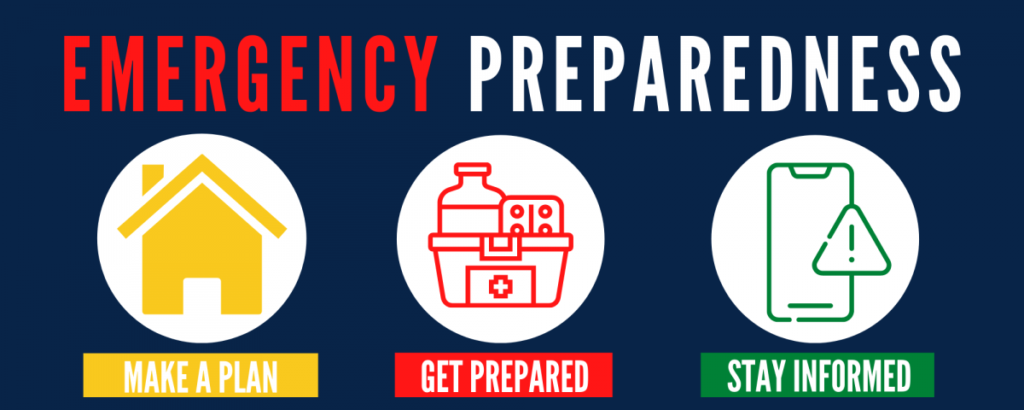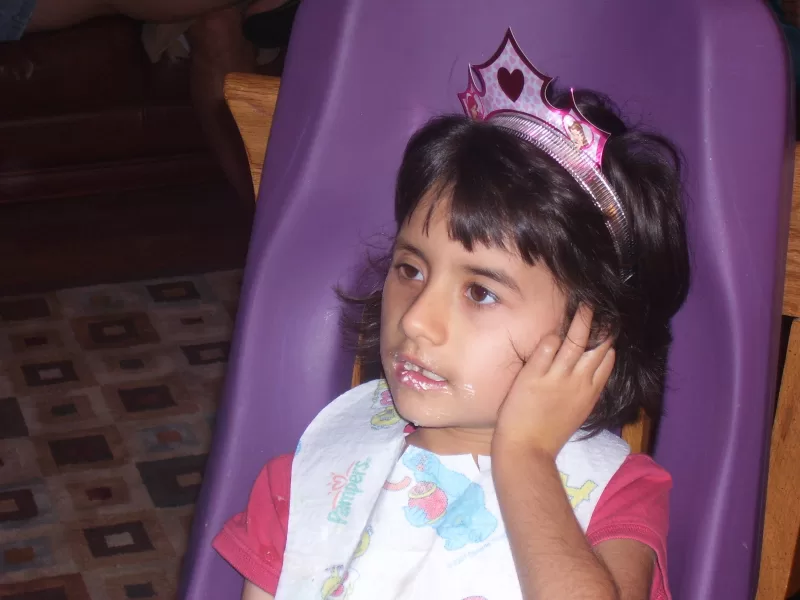
As a parent of a daughter with disabilities, it feels like I am always thinking about the “worst case” scenarios so that I am prepared. This is futile because you can never prepare for all situations. The thought of a fire in our home is panic-inducing. Add in a daughter that cannot move on her own or speak and it is a completely different world. Fortunately, we only deal with hurricanes, earthquakes, tornadoes, and mudslides when we are on trips. But, with the changing climate, we could deal with some of these conditions soon. I have learned the best way to deal with my fears is to be prepared.
An emergency or disaster can happen quickly or with little warning. Creating a disaster plan is important for all families. If you have a loved one with a disability, it is essential that you create a plan and communicate it. Protecting your loved ones requires planning. This article can help point out many things that need to be thought through in case of an emergency. This list is not all-encompassing, and it does not cover all disabilities, but it provides a starting point.
Assign roles:
It is important to know who is getting family members out of the house. Practice the evacuation. It will help you realize all the areas you forgot.
You may have multiple family members that need help. Plan for this situation. Each person who can assist should know everyone’s needs. You never know who will help whom. We installed an emergency exit ramp off of our daughter’s room so we can get her out easily. The door is wide enough for both her wheelchair and her hospital bed. It exits to the driveway. It will allow us to get her out of the house if there is a fire. Think about your needs- is it earthquakes, hurricanes, or flooding? Prepare for those situations.
With a tornado, we would need to carry our daughter downstairs. This is doable in an emergency. Knowing it ahead of time allows us to prepare.
Medication and equipment:
Make sure you have a few days’ supplies of any medication with you. You can always go to the pharmacy later. Do you get medications by mail? Disasters can disrupt mail for weeks. Prepare a list of all medications, dosages, and allergies. Have a list of medical supplies and equipment that you need.
If you will need power for your medical equipment, have a plan for this. We have a generator that we bought with a grant that can power our home if we need it. Contact your local electric company about power needs for life-sustaining devices (home dialysis, breathing machines, etc.) in advance. Some companies can put you on a “priority reconnection service” list.
Pack:
Make sure you have easy access to what you need. Everything you need for a few days should be easily accessible. Figure out if you can push a wheelchair (or assist someone) and take an emergency bag. You will not have time to find things, so a prepared bag is a good idea.
Evacuate:
Be sure to plan accessible transportation. If you have an electric wheelchair or one that is hard to transport, it is handy to have a lightweight manual one you can use in an emergency. Keep it by your emergency exit. If you have a transfer board, consider leaving it by an exit or in a vehicle if you do not need it every day. Make sure you have a cane or walker close if needed. If you have extra or back-up equipment, you might leave it with a friend or store it so you have access to it if something happens to your home.
Many communities ask people with a disability to register, usually with the local fire or police department, so they can provide quickly needed help in an emergency. Check in your community to see if they have a volunteer aid group that you can contact ahead of time for help.
If you cannot communicate, carry printed information on you to inform first responders about your needs. This could be an id bracelet or printed information. Or have an id bracelet that directs people to a bag with all emergency info. Check out these fillable forms for ideas. We keep a bag in our daughter’s backpack that has a copy of insurance cards, emergency contact, a list of medications, and emergency medication.
Be sure you can access your health records electronically. Most people have this, but if you do not, consider signing up.
Support animals:
Know where you can take a pet. Pack important supplies ahead of time, like pet food, extra water, a collar with an ID tag, medical records, and other supplies for your service or support animal. Make sure you have the licenses for your service animal so you may keep it with you should you need or choose to use an emergency public shelter.
Other things to consider:
- Keep electronic devices charged and bring spare chargers with videos, have snacks, noise-canceling headphones
- Extra eyeglasses, contacts, hearing aids, and batteries
- Keep vital records in a safe deposit box
- Create a disaster supplies kit and check it every year
- Practice fire and evacuation drills
When thinking about preparing for emergencies, I am always reminded of the Benjamin Franklin quote, “By failing to prepare, you are preparing to fail.” Nobody wants to fail during an emergency or disaster. Prepare as much as you can, practice many times, and then trust that you can handle these situations.


